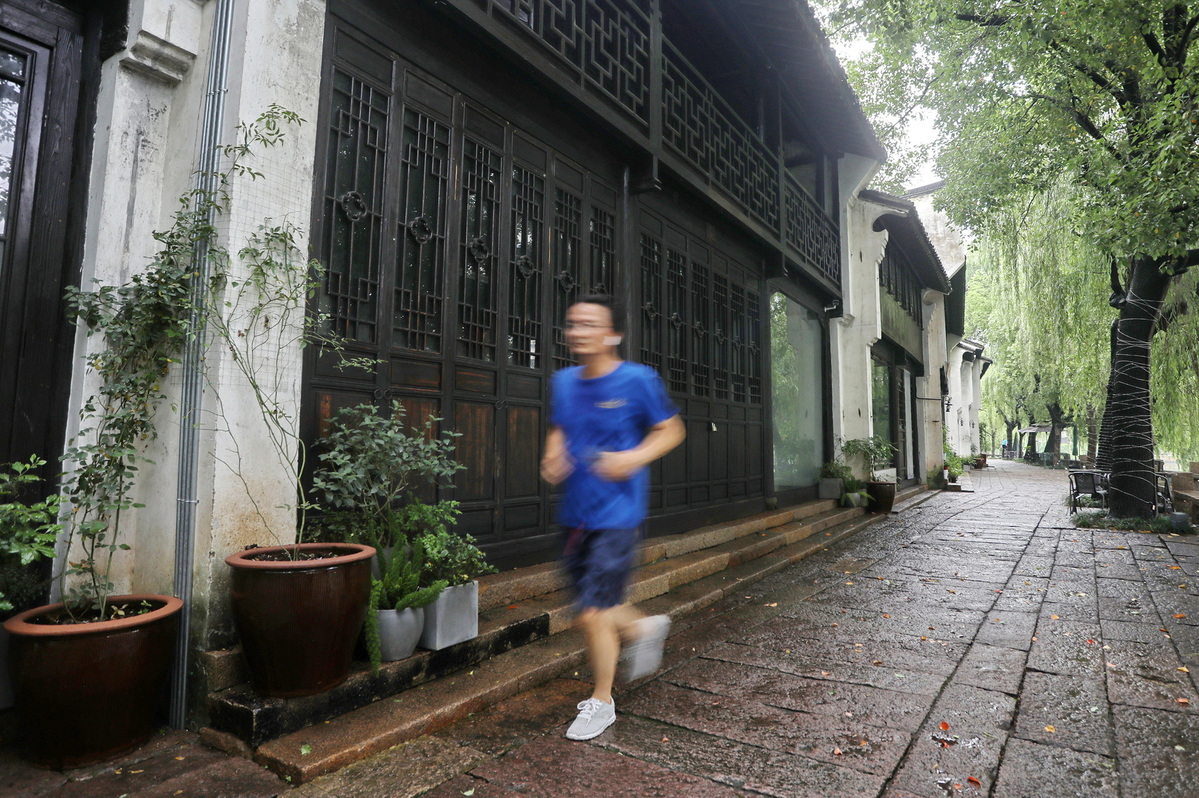Morning workouts boost bone strength, study finds


Researchers at the Huazhong University of Science and Technology in China have found that the time of day in which you exercise matters when it comes to getting fit. Mice in the experiment who exercised in the morning developed longer and stronger bones than those who did the same amount of exercise at night.
Mice and humans share similar metabolic processes when it comes to building bones. Skeletal health declines in humans in a similar manner to rodents, with degeneration occurring in both species at middle age. It is crucial to keep up activity and movement in order to protect our bones and reduce the risk of fractures from falls. Mortality for people over the age of 60 after suffering a hip fracture can be as high as 40 percent in some cases. Good bone health can positively affect the rest of the body, including the immune system, as bones produce both red and white blood cells.
The studies in mice demonstrated a significant increase in bone-length growth and thickness in both male and female mice. Exercising in the morning significantly increased the upregulation of genes associated with the development of bones and metabolism. The study notes that the genes responsible for chondrification, the process in which the body produces layers of cartilage and bone, occurs in a rhythmic manner, meaning that timing could be crucial in exploiting the body's natural schedule in fortifying itself.
The consequences for this not only hold true for exercise intervention recommendations, but also with regards to height and stature. Bone length and mass during childhood and adolescence plays a crucial role in final adult height. This process is defined mostly by our genetics, but by paying attention to the natural rhythms in which our bodies work mean we can achieve our full natural potential. This is not to say however that morning exercise is best for all health goals. Randomized trials have indicated that it is actually the afternoon in which exercise is most effective in improving glucose blood sugar levels in those with type 2 diabetes.
Likewise, many studies show that it is in the evening when strength peaks. Exercises such as handgrip, bench press and squatting with weights can improve strength by as much as 15 percent between the morning and evenings. This is thought to be the case because core body temperature peaks between 2pm and 6pm, optimizing the body for peak performance. Body temperature is lowest in the morning but steadily increases by about a degree celsius before starting to cool down after 7pm. By exercising during these periods your muscles will be warmer, which can also potentially reduce the chances of injury.
Some studies even suggest that exercising at these times results in more calories being burned, useful information for those looking to reach a healthier weight.
Reaction times are faster later in the day. It is widely accepted in racquet sport communities such as tennis and badminton that serving speed and accuracy is sharper in the afternoon or evening compared to morning practice. Athletes who compete internationally sometimes spend exuberant amounts of money on sleep coaches, who can help configure their body clocks before traveling to a tournament in a different timezone.
Exercising at night may hinder sleep quality for the same reasons. An increased heart rate and core temperature are the opposite for what is required to fall asleep. Instead, less intense exercises such as yoga may be more fitting for this time of day.
Increasing evidence suggests that the time of day matters when it comes to getting the most out of your exercise routine. The human body runs on a complex but stable daily routine and taking advantage of this to maximise specific benefits, whether it be weight loss or bone density, is a concept scientific evidence is increasingly supporting.
Barry He London-based columnist for China Daily.

































